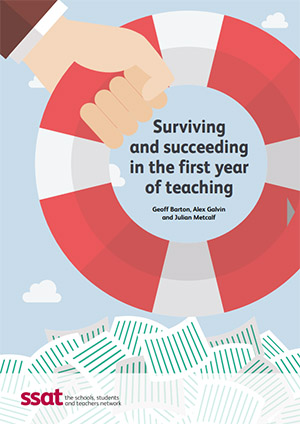
Did you know? You can access 100s of resources by becoming an SSAT member.
Login or enquire today.
Surviving and succeeding in the first year of teaching
More than many jobs, teaching can be an exhausting one. Many people who aren’t teachers don’t realise this. They just see the short working days and the generous holidays. They think it’s easy. The reality is that teaching has rhythms, cycles and pressure points. The seasons have a big effect. New school years usually begin in a mood of early autumn sunshine. Behaviour, in general, is better, idealism untarnished. Then the darker nights arrive the colder weather. Time slows down and the term seems longer, the Christmas break impossibly far off. It’s in the darker days of late autumn that the morale of a newly qualified teacher can begin to bend.
You may be feeling anxious at this stage about the task ahead – all that responsibility, so much to remember, worries about whether you’re really ‘up to the job and whether students will behave for you. We all felt that before we started. And here’s a big secret: most teachers experience the same feeling just before the start of any new year, term, or even week. For some of us, it goes with the job. Part of the learning process is to know how to manage your nerves and how to cope with the inevitable stresses of the job. This publication was produced to provide ideas to help guide you and your colleagues to overcome any worries you may have and how to help yourself survive and succeed.
SSAT Membership
Join SSAT to gain free access to our widest range of CPD, programmes, tools and resources.

